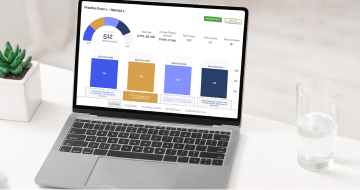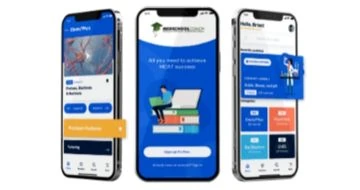Consciousness-Altering Drugs
MCAT Psychology - Chapter 2- Section 1 - Cognition - Consciousness
- Home
- »
- MCAT Masterclass
- »
- Psychological, Social, and Biological Foundations of Behavior
- »
- Psychology
- »
- Cognition
- »
- Consciousness
- »
- Conciousness-Altering Drugs- MCAT Psychology
Sample MCAT Question - Consciousness-Altering Drugs
Which type of consciousness-altering drug facilitates the neurotransmission of GABA?
a) Stimulants
b) Depressants
c) Hallucinogens
d) Opioids
B is correct
Depressants produce calming effects and reduce stimulation by facilitating neurotransmission of GABA, an inhibitory neurotransmitter. Answer choice A is incorrect because stimulants produce euphoria by blocking the reuptake of dopamine, norepinephrine, and serotonin. Answer choice C is incorrect because hallucinogens produce hallucinations by either binding to specific receptors or enhancing neurotransmission. Answer choice D is incorrect because opioids produce pain relief by acting as agonists of opioid receptors.
Get 1-on-1 MCAT Tutoring From a Specialist
With MCAT tutoring from MedSchoolCoach, we are committed to help you prepare, excel, and optimize your ideal score on the MCAT exam.
For each student we work with, we learn about their learning style, content knowledge, and goals. We match them with the most suitable tutor and conduct online sessions that make them feel as if they are in the classroom. Each session is recorded, plus with access to whiteboard notes. We focus on high-yield topics if you’re pressed for time. If you have more time or high-score goals, we meticulously cover the entire MCAT syllabus.
Consciousness-Altering Drugs for the MCAT
There are four major classes of consciousness-altering drugs that you need to know for the MCAT. Consciousness-altering drugs are named as such because they affect our neurochemistry in various ways, altering how we consciously experience reality. By affecting our cells and neurotransmitters, drugs are able to change our mood, emotions, thoughts, and actions. The four classes of drugs you need to know for the MCAT are stimulants, depressants, hallucinogens, and opioids.
Stimulants
- Stimulants reduce fatigue, reduce, drowsiness, increase libido, and increase wakefulness. They generally act by binding to neurons and preventing the reuptake of the neurotransmitter’s dopamine, norepinephrine, and serotonin. By blocking the reuptake of these neurotransmitters, the neurotransmitters will persist in the synapse for much longer and exert longer and stronger effects. Stimulants like cocaine block the reuptake of dopamine, which activates the reward circuit of our brain, explaining the addictiveness of cocaine. Other examples of stimulants include: caffeine, nicotine, cocaine, and amphetamines.
Depressants
- Depressants produce calming effects, provide pain relief, and induce sleep. They achieve these effects by reducing physiological arousal, reducing heart rate, and slowing down respiration. Depressants typically function by facilitating the neurotransmission of GABA. GABA is an inhibitory neurotransmitter that has the effect of globally reducing central nervous system activity. Examples of depressants include: alcohol, benzodiazepines, barbiturates
Hallucinogens
- Hallucinogens are named for their ability to produce hallucinations in humans. Hallucinations are sensations or images that seem real but are not real. The mechanism of action for hallucinogens is variable. For example, marijuana acts on cannabinoid receptors, while LSD is a serotonin receptor agonist. Additionally, PCP enhances dopamine neurotransmission.
Opioids
- Opioids produce pain relief and slow some bodily functions, such as respiration rate. Opioids are highly addictive, which is an issue of critical importance because opioid abuse and prescription is a issue that heavily impacts the field of medicine. Opioids are agonists of opioid receptors. The endogenous ligands of opioid receptors (the molecules produced by the body that normally act on opioid receptors) are endorphins, enkephalins, and dynorphins. Examples of opioids include: Opium, Morphine, Heroin
Explore More MCAT Masterclass Chapters
Take a closer look at our entire MCAT Masterclass or explore our Biochemistry lessons below.

One-on-One Tutoring
Are you ready to take your MCAT performance to a whole new level? Work with our 99th-percentile MCAT tutors to boost your score by 12 points or more!
See if MCAT Tutoring can help me
Talk to our enrollment team about MCAT Tutoring

MCAT Go Audio Course
Engaging audio learning to take your MCAT learning on the go, any time, any where. You'll be on the way to a higher MCAT score no matter where you are. Listen to over 200+ lessons.

MCAT Practice Exams
Practice makes perfect! Our mock exams coupled with thorough explanations and in-depth analytics help students understand exactly where they stand.

MCAT Prep App
Access hundreds of MCAT videos to help you study and raise your exam score. Augment your learning with expert-created flashcards and a question banks.